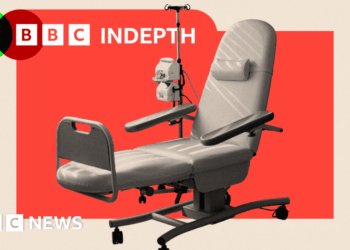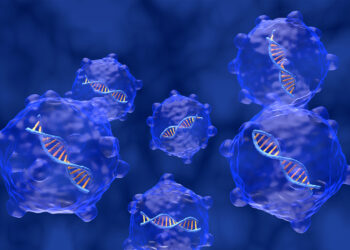
- Researchers say black coffee can help lower the risk of type 2 diabetes.
- The findings of a new study suggest that people who regularly drink caffeinated and decaffeinated coffee benefit from some of the beverage’s naturally occurring polyphenols.
- Experts say the amount of coffee a person can tolerate varies, and you should avoid adding sugar or cream or eating unhealthy breakfast foods with your coffee.
A new research analysis suggests that black coffee, whether caffeinated or decaffeinated, may help lower the chances of developing type 2 diabetes.
Researchers affiliated with universities in the Republic of Korea say people who drink 3 to 5 cups of black coffee per day benefit from natural compounds known as polyphenols.
For the study, the researchers compiled data from 149 publications to examine coffee’s effects on the metabolic forces involved in the development of type 2 diabetes. They focused on five hydroxycinnamic acids found in coffee and analyzed the effects these polyphenols had on the small intestines, pancreas, liver, muscle, and tissue.
The analysis shows that daily consumption of black coffee can help modulate blood sugar levels, suppress inflammation, enhance insulin sensitivity, provide antioxidant properties, and improve glucose metabolism.
The results were similar for both caffeinated and decaffeinated coffee, so the benefits appeared to be derived from compounds other than caffeine. This included a 20–30% lower risk of type 2 diabetes incidence for regular coffee drinkers.
The scientists say further research is necessary, but the benefits of daily coffee consumption appear to be clear.
“Coffee and its bioactive compounds, including chlorogenic acid and its hydroxycinnamic acid derivatives… have significant potential in the prevention and management of [type 2 diabetes],” the researchers wrote.
Zhaoping Li, MD, a professor of medicine and the chief of the Division of Clinical Nutrition at the University of California, Los Angeles, agreed. Li wasn’t involved in the study.
“Drinking coffee provides natural benefits,” she told Healthline. “You can make coffee part of your healthy lifestyle.”
Marilyn Tan, MD, a clinical associate professor of medicine at Stanford University in California, had some cautions about the findings. Tan was likewise not involved in the study.
She said the findings are notable, but added that some of the research reviewed was conducted in lab settings. She said that observational studies don’t always account for external factors such as coffee drinkers’ overall health.
“[The research] is a very bold statement, as a 20–30% risk reduction is very large and meaningful,” Tan told Healthline. “Interestingly, whether the coffee was caffeinated or not did not seem to make a difference, which suggests it’s not the caffeine driving the benefit, but rather the other components of the coffee.”
Li explains that coffee is a natural product. If you drink it black, it’s basically just coffee beans and hot water.
Li said coffee beans contain about 200 compounds, many of which have potential health benefits. In some cases, the mixture of compounds is beneficial.
Many of these compounds are also similar to the ones found in certain spices.
“Humans can take advantage of what this [coffee] plant provides,” Li said. “The health benefits of black coffee seem to be obvious.”
Previous research has indicated that there are other health benefits to regular coffee drinking.
Another recent study reported that regular consumption of black coffee can reduce a person’s overall mortality risk as well as their risk of death from cardiovascular disease.
Other studies have associated coffee with improved brain health, lowering the risk of depression, and protecting against certain liver conditions.
Li cautioned people to be wary of their caffeine intake if they are drinking 3 to 5 cups of coffee per day.
She said 3 cups daily is probably fine for most people, but some folks may not be able to handle the caffeine load from 4 or 5 servings per day.
People with certain heart conditions should also carefully monitor their caffeine intake. “Everybody is different,” Li said.
Tan shared similar concerns. “Three to five cups of coffee is a significant amount,” she said. “If the coffee contains caffeine, excess caffeine may also have other unwanted symptoms, such as headaches, jitteriness, nausea, [and] insomnia. In addition, with certain health conditions (pregnancy, heart disease), this much caffeine may cause physical harm.”
Li said those who can’t tolerate a lot of caffeine can simply drink decaffeinated coffee. “You remove the caffeine, but the rest of the compounds are still there,” she said.
People can also drink tea or use spices in their cooking instead of sugar and salt to obtain some of these health benefits, Li added.
Li said the most important way to derive health benefits from coffee is to drink it black without adding sugar or cream.
She advised against unhealthy breakfast foods with coffee, such as sugary donuts.
Li noted that coffee can be particularly helpful if it’s a substitute for other types of liquids, particularly those high in sugar.
“Black coffee is beneficial, especially if you are replacing sugary drinks with it,” she said.
The Centers for Disease Control and Prevention (CDC)
The percentage rises with age, reaching nearly 30% in people ages 65 and older. The condition is also more prevalent in non-white populations and is slightly higher among males than females.
Type 2 diabetes is a chronic condition that is characterized by high blood glucose levels, resulting from the body’s ineffective response to insulin or insufficient insulin production.
The symptoms of type 2 diabetes can include:
- unusual hunger
- fatigue or lack of energy
- excessive thirst
- frequent urination
- blurry vision
There are a number of factors that can raise a person’s risk of type 2 diabetes, such as:
- genetics
- excessive weight
- lack of physical activity
- a diet high in sugar, refined carbohydrates, and ultra-processed foods
Li advised people to limit added sugars and monitor the starch and carbohydrates in their daily diets and reiterated the importance of daily exercise.
Tan agreed that an overall healthy lifestyle can help reduce type 2 diabetes risk. Lifestyle factors that may influence risk include:
- regular moderate intensity exercise most days of the week
- reducing carbohydrate intake and minimizing intake of processed foods
- weight loss if a person has overweight or obesity
- maintaining muscle mass (being thin alone is insufficient)
- avoiding tobacco
- reducing alcohol intake
- stress reduction
- sleep quality
Source link : https://www.healthline.com/health-news/coffee-may-lower-type-2-diabetes-risk
Author :
Publish date : 2025-07-03 11:11:30
Copyright for syndicated content belongs to the linked Source.














